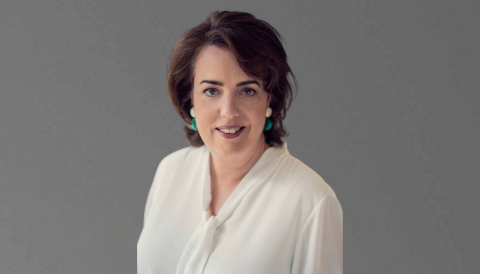
May 12th 2023
System for the future
- Employment best practice
- OF THE
- Cultural differences
- Support base
In her foreword for our 2022 annual report, our chairman Manon van Beek argues that a system change is needed: “We have to look at people and talent differently.”
As chairman of the Board of Refugee Talent Hub, I experience many things (from the sidelines) and I see from the figures and stories how the work my colleagues do actually makes an impact. Impact on individuals, organizations and society as a whole. A trinity that is so important. Because if you actually want to bring about change, you have to do it at different levels.
And change is what we want and must strive for. The system of the past does not provide the answers for the future. That system is still geared towards Dutch professionals: people who speak the language, who have a network and who have an education that we can easily place. People who – in general – do not have a gap on their CV of two years or more.
We now face greater social challenges than ever before – in the field of sustainability, for example. Add to this the current shortages in the labor market, and we all know that there is a big gap. So we have to look at people and talent differently. A system change is needed. The current system holds too many people back in their development. Women, people of color, people with a non-Dutch sounding name, people with a refugee background.
If we want to build the world of the future, we need all the talent. All different perspectives, experiences and skills. Because only together we become stronger. We see more possibilities. Can we handle the challenges of our time?
In the world of the future we do not look at differences in skin color, race, gender, sexual orientation, religion or origin. In that world, in that new system, we look at someone as a person, we see talent and we 'match' based on character, properties and ambition.
Diversity, inclusion and equality are not vague concepts; they are desperately needed and I challenge everyone to make them the core of your policy. In any case, from my role as CEO of TenneT, I can say: without looking at talent differently, the energy transition - and therefore the climate objectives - will be at risk. So at TenneT we look at: what does someone need to work for us? How are we going to arrange this as an employer?
Hiring refugee talents is truly a win-win solution: professionals find meaningful work at our company and TenneT builds a diverse and talented workforce. I am convinced that a diverse and inclusive culture increases company performance; it makes TenneT more meaningful, more sustainable, more innovative, more profitable and more fun.
I am proud to be able to contribute to the world of the future at both TenneT and Refugee Talent Hub. And I am convinced that we can handle the system change. The figures from Refugee Talent Hub are clear again this year: more than 300 status holders found a sustainable job through the team's activities.
As I write this foreword, Minister Karien van Gennip (SZW) has just made a working visit to the Refugee Talent Hub. She also says: “If we start to see people with a refugee background as professionals who were born somewhere else, we will make further progress.” I can only agree with that!
Manon van Beek
Also read: This blog is also the foreword to the Refugee Talent Hub annual report 2022. Read the annual report here .